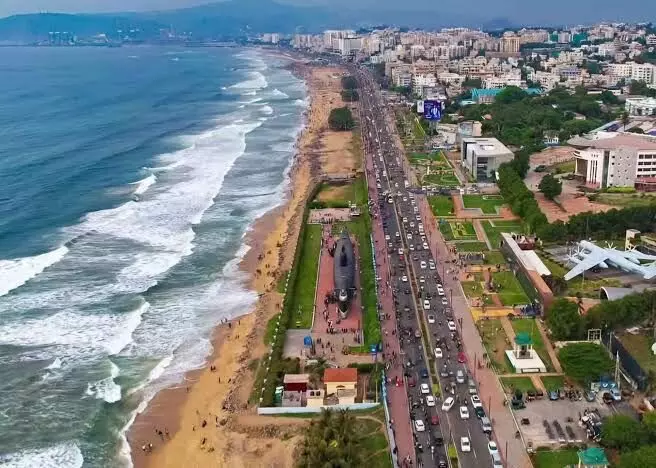Visakhapatnam ranked safest city for women in India; Delhi, Kolkata at the bottom
The nationwide index was based on a survey of 12,770 women across 31 cities
By Sri Lakshmi Muttevi
Visakhapatnam ranked safest city for women in India; Delhi, Kolkata at the bottom
Visakhapatnam: Visakhapatnam city has been ranked as the safest city for women in India, followed by Kohima, Bhubaneswar, Aizawl, Gangtok, Itanagar and Mumbai, according to the National Annual Report and Index on Women’s Safety (NARI) 2025.
These cities scored high on gender equity, civic participation, effective policing and women-friendly infrastructure.
Delhi and Kolkata placed lowest
At the other end, Patna, Jaipur, Faridabad, Delhi, Kolkata, Srinagar, and Ranchi were placed lowest, reflecting weaker infrastructure, patriarchal norms and limited institutional responsiveness.
The nationwide index was based on a survey of 12,770 women across 31 cities. It pegged the national safety score at 65 per cent, categorising cities as “much above,” “above,” “below,” or “much below” this benchmark.
Women reported that harassment in public included staring, catcalling, lewd remarks and unwanted touching, often worsened by poor lighting, inadequate infrastructure, and unreliable public transport.
Key findings of the report
- Six in ten women said they felt safe in their city, but 40% still felt unsafe or not so safe.
- Workplaces were rated relatively secure, with 91% of women reporting a sense of safety.
- 7% of women experienced harassment in public spaces in 2024, a figure that doubled to 14% among women under 24.
- 38% flagged neighbourhoods and 29% pointed to public transport as the most common harassment hotspots.
- While 69% considered current safety measures ‘somewhat adequate,’ more than 30% highlighted major gaps and failures in existing systems.
Launching the report, National Commission for Women (NCW) chairperson Vijaya Rahatkar observed: “Safety cannot be seen merely as a law-and-order issue but as one that impacts every aspect of a woman’s life — education, health, work opportunities, and freedom of movement.”